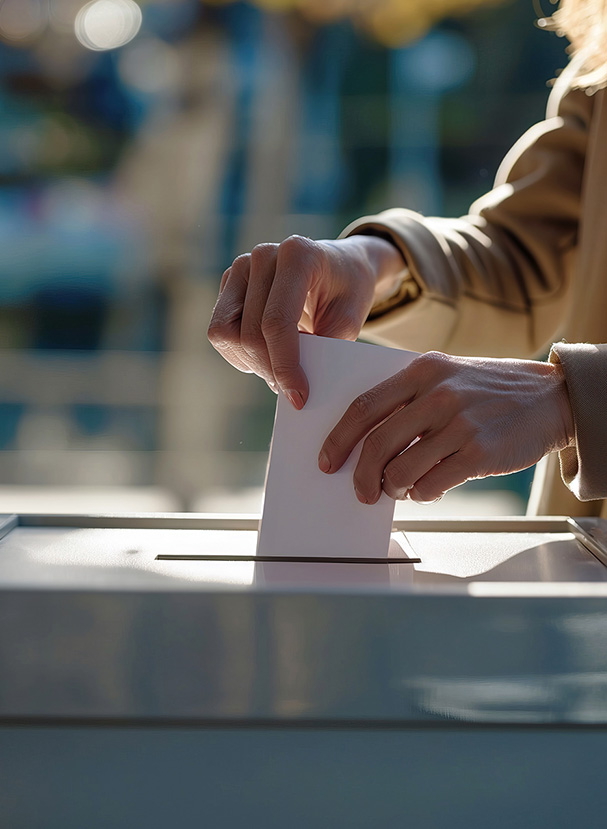Evacuations from High-Risk Locations Call +44 (0)1202 308810 or Contact Us →

Political Risks of the Liberian Election Postponement
8 Nov 2017
On 6 November 2017, the Supreme Court of Liberia suspended the planned run-off vote in the country’s presidential elections; the vote was due to occur the following day, 07 November. The court unanimously ordered the National Elections Commission to spend more time investigating allegations of fraud by Charles Brumskine, who finished third in the vote on 10 October 2017 behind George Weah (an ex-football player) and Vice President Joseph Boakai; Weah and Boakai were due to face off in the run-off vote on 07 November. In the initial vote, Weah came out on top with 38 per cent, Boakai finished second with 29 per cent, while Brumskine ended up third with just over 9.5 per cent of the vote; no candidate reached the required 50 per cent to prevent a run-off vote.
Key Points
- The run-off of the Liberian election scheduled for 07 November has been delayed.
- The Supreme Court ordered the delay due to allegations of fraud made by the third-place candidate from the first-round vote on 10 October.
- No new election date has been set.
Situational Summary
Political: On 06 November 2017, the Supreme Court of Liberia suspended the planned run-off vote in the country’s presidential elections; the vote was due to occur the following day, 07 November. The court unanimously ordered the National Elections Commission to spend more time investigating allegations of fraud by Charles Brumskine, who finished third in the vote on 10 October 2017 behind George Weah (an ex-football player) and Vice President Joseph Boakai; Weah and Boakai were due to face off in the run-off vote on 07 November. In the initial vote, Weah came out on top with 38 per cent, Boakai finished second with 29 per cent, while Brumskine ended up third with just over 9.5 per cent of the vote; no candidate reached the required 50 per cent to prevent a run-off vote.
This election looked set to mark the first democratic, peaceful transfer of power in Liberia’s recent history.
Solace Global Comment
It is unclear what this move by the Supreme Court will mean for Liberia in the longer term. While international election observers from the Carter Centre and National Democratic Institute noted a few irregularities in the 10 October vote, they largely judged the vote to be free and fair. Moreover, even if there was widespread electoral fraud it is unclear how Brumskine and his Liberty Party would be able to overcome a near 20-point deficit.
During the last election in 2011, there were some clashes between police and the primary opposition between the first and second rounds of the vote; two were killed by police. This move by Liberia’s Supreme Court does have the potential to bring supporters of rival candidates to the streets, raising the fear of a repeat of the unrest of 2011. However, Weah and his Congress for Democratic Change (CDC) has called for calm and refrained from encouraging supporters to participate in protests. The CDC had, however, predicted a crisis if the vote was suspended. Boakai and the Unity Party have praised the Supreme Court and Brumskine’s bravery, perhaps hoping to steal some votes from Weah and receive the endorsement of the Liberty Party when the re-run election does take place. Boakai has also criticised the election commission. At present, the streets of Liberia have remained largely peaceful.
This move does, however, potentially suggest the growing autonomy, independence, and boldness of the judiciary in certain sub-Saharan African nations. Historically, judicial officials on the continent have been accused of doing the bidding of the political classes. Liberia’s judges have followed the recent move by their Kenyan counterparts in preventing or annulling a vote seen as free and fair by the international community. Many have praised this independence and hope that other judicial systems will follow the Kenyan and Liberian examples in future elections.
It is unclear when the run-off vote is due to take place. However, the Supreme Court has ruled that the National Election Commission will need to finish conducting its investigations into the first-round fraud allegations before Weah and Boakai can go head-to-head. Some in the country fear the Supreme Court’s ruling will lead to political instability and perhaps the installation of an interim government. Given Vice President Boakai’s criticism of election officials and the voting process, unrest is a possibility before and after the run-off vote.
SECURITY ADVICE
PoliticalModerateTravellers are advised to remain vigilant in the short- to medium-term. There is the realistic possibility for civil unrest and political instability during this period. As previously noted, demonstrations between the two rounds of the 2011 presidential election in Liberia saw some deadly clashes between police and protestors; the capital city Monrovia is likely to see the majority of any unrest which does occur. All demonstrations should be avoided, for, despite initially seeming peaceful, they have the potential to lead to violence.
Travellers should, at all times, maintain situational awareness and employ sensible security precautions when in Liberia, this is especially important during this period. Travellers should also note the threat posed by Liberiaâs high level of crime and hazardous travel conditions.
Solace Global would advise clients to employ airport meet and greet alongside a locally-vetted driver for all movements in Liberia. Solace Global would also advise clients to employ a travel tracking system with an integrated intelligence feed, to allow employers to effectively execute duty of care, and permit the traveller to remain up to date with potential threats.